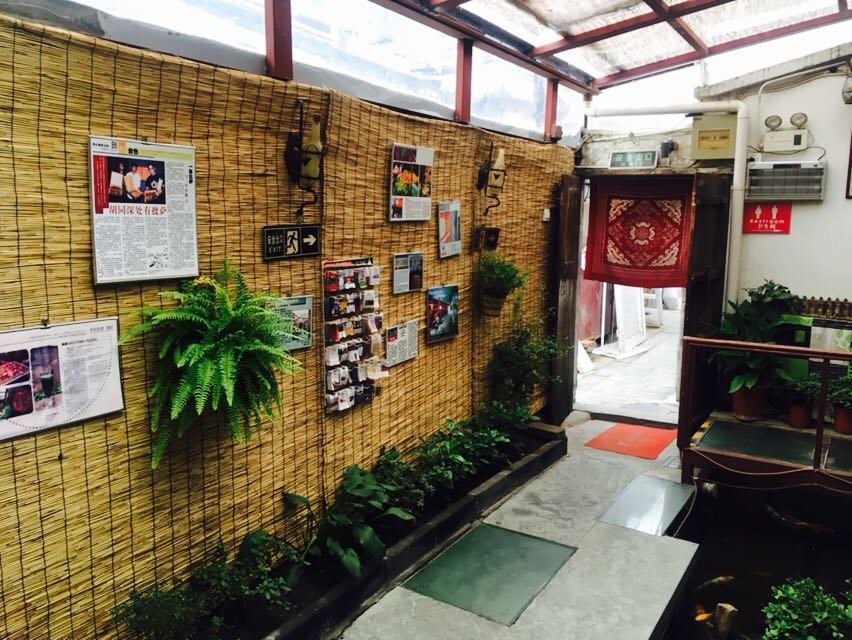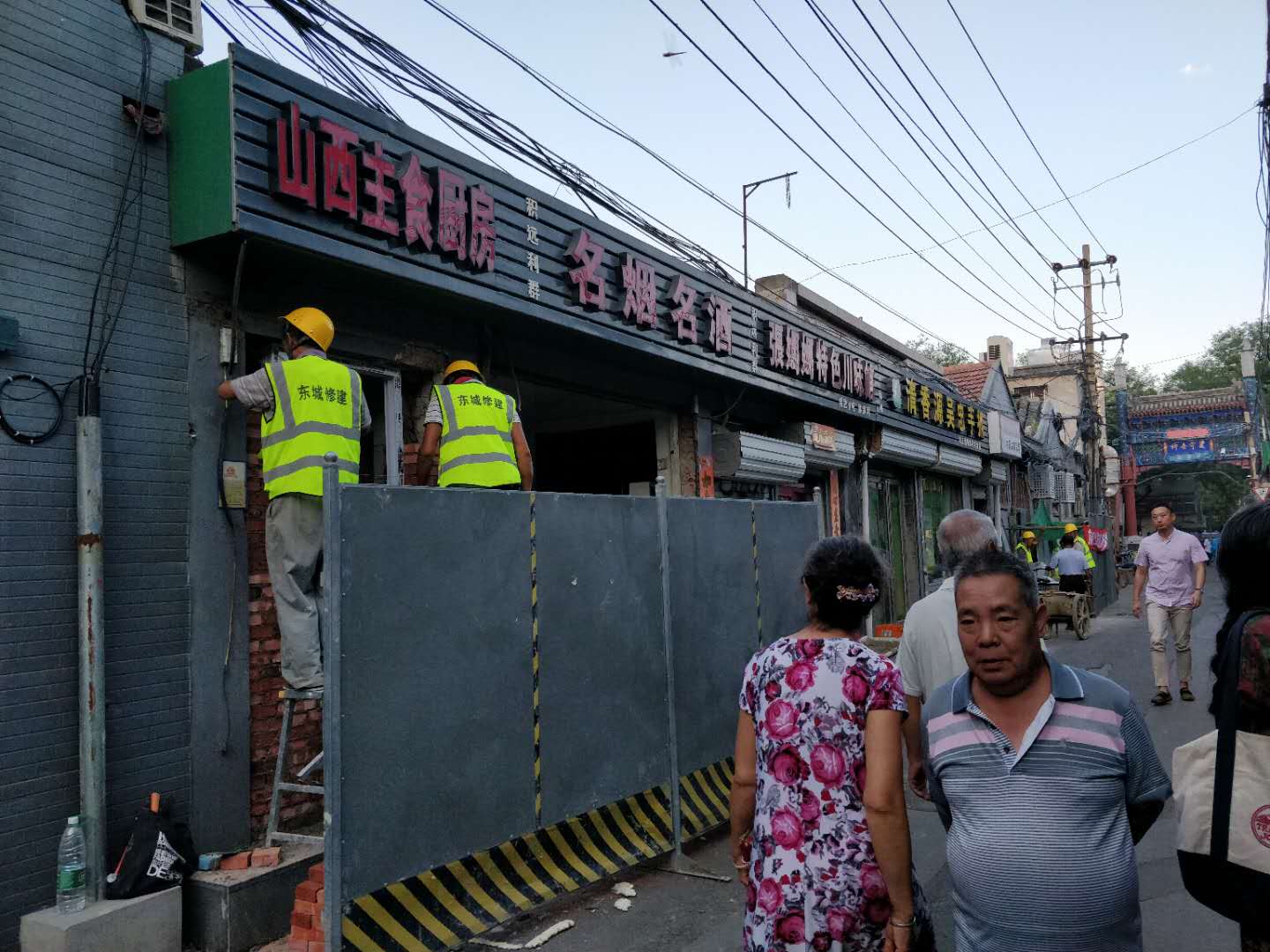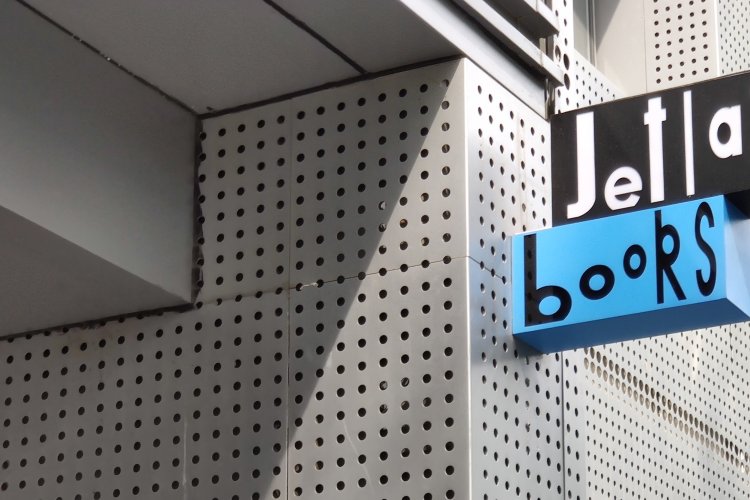Latest Round of Brickening Leaves Gulou Relatively Unscathed, For Now
An air of relief is reverberating around the city following the latest round of commerce-killing streetside renovations in Beijing. While one long-running Gulou favorite was forced to pack it in over the weekend as construction picked up on the busy Dongcheng street, and staff members at an even more famous Houhai restaurant are holding their breath as government-backed closures loom almost inevitably, many other popular nearby spots have escaped unscathed. Following rumors that have been percolating for months, the bricks finally touched down in the area late last week. However, the bricklaying that swept through could be defined as surprisingly uneventful overall given the rampant sterilization that ensued after revamps took place on other once busy streets and alleyways like Fangjia Hutong, Xingfucun, and Sanlitun North.
All that may be of little consolation to regulars at popular Gulou cocktail bar Scarlet A, which suddenly announced this past Friday that their operations wouldn't last past the weekend. Co-owner and manager Zhang Wei tells the Beijinger that he's sad Scarlet A was chai'ed because "it was a very down to earth neighborhood bar where regulars became friends and formed a small community together. We owe our success to them, and thank them for their support throughout."

That being said, Zhang considers the closure to not be a fatal blow but instead a surmountable setback. Indeed, the Scarlet A team plan to find a new location and reopen as soon as possible, though Zhang says they will set their sites on the less volatile Chaoyang District, leaving yet another gaping hole in Dongcheng's vibrant nightlife scene. Another upshot of the Gulou construction: while Scarlet A and a few other nearby small shops didn't survive, a handful of other longtime favorites remain unaffected.
Among the most well known to Beijinger readers will likely be Raj Indian restaurant and the nooky Japanese eatery Murasakitama across the road from Scarlet A's former digs, not to mention beloved neighboring livehouse Temple and Dada nightclub. Further afield, popular Beiluogu Xiang businesses like Mai Bar and Mai Fresh, Nina, Soi Baochao, Hoper, and El Nido at The Other Place have all been unaffected, much like further west lying hotspot 4corners, though owner of the Vietnamese restaurant and bar Jun Trinh says he has seen plenty of construction happening on and around Gulou (submitting the lead image above as proof). Trinh voiced concerns about popular Sichuan restaurant Zhang Mama being bricked up, but the owners say they are only temporarily closed at Nanluogu Xiang because of nearby construction, while their Drum Tower branch has been unaffected.
And while plenty of big Gulou names are still going strong after the weekend's construction, the prompt closures that did occur have left business owners and patrons throughout the hutongs anxiously awaiting another wave of forced renovations. One restaurant, in particular, has hard evidence that such a fate awaits them, though their circumstances are special: Hutong Pizza. Zhou Shuyan, who has been the manager at the veteran Houhai pizzeria for the past 13 years, says their business is on the premises of an even older 400-year-old temple. Zhou explains: "The state is protecting cultural relics and is not allowing food and drink businesses on site, due to fire safety restrictions."

Worse still, Zhou says: "Renovations are happening all over Houhai lately, and that means there is next to no passenger flow. Business is definitely not as good as it used to be." Despite all that, Zhou says he and his colleagues are "sticking with it for now, and we will keep working hard at it."
Despite the widespread renovations that Zhou described, other nearby Western favorites say they haven't been given vacancy notices just yet. Following months of chatter that Beiluogu Xiang would be bricked up entirely, more than half a dozen businesses there tell the Beijinger that they are carrying on as normal, despite knowing that their circumstances might change. For instance, El Nido, run by founder Xiao Shuai and business partner Zak Elmasri just relocated from the brick-eviscerated Fangjia Hutong to the courtyard digs of The Other Place, just off of Beiluogu Xiang. Though this new spot may currently appear a safer bet when compared to the notoriously volatile alley that housed them prior, skeptics would point out that no hutong is safe these days. But for Elmasri and his cohorts, along with swaths of other hutong proprietors, plying their trade in Beijing's fun and offbeat alleyways is worth the considerable downsides. As he puts it: "We're in an independent yard, so they can't block the door, which is good news. Other problems might arise, who knows. But we know what's going on and we know the rules of the game, so we are ready to adapt if necessary."
That sentiment is shared by fellow alleyway bar owner James Hao of Hoper cocktail lounge. He tells the Beijinger that even if his place gets bricked up or shut down, he will just find another hutong location because he loves operating a business in that part of the city so much. He adds: "The hutongs are unique to Beijing, and they have their own culture. It is not only due to the distinctive buildings but also because of the people here. Kind and warm old Beijingers live here, and many interesting and sincere young people from all over the world stop by. I don't want to leave the hutongs because they have a very special human touch."
More stories by this author here.
Email: kylemullin@truerun.com
Twitter: @MulKyle
Instagram: mullin.kyle
Photo: Jun Trinh, Scarlet A







